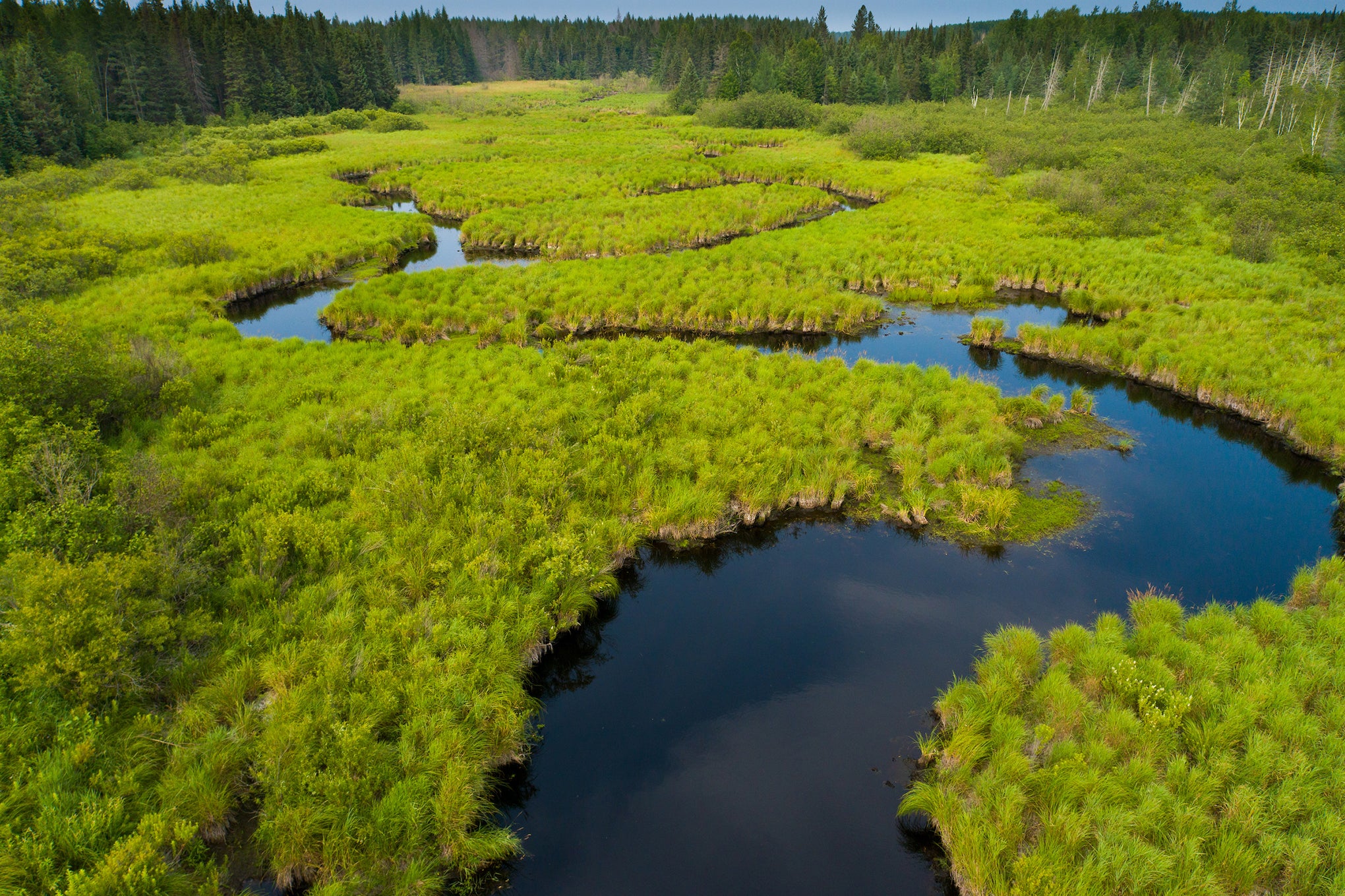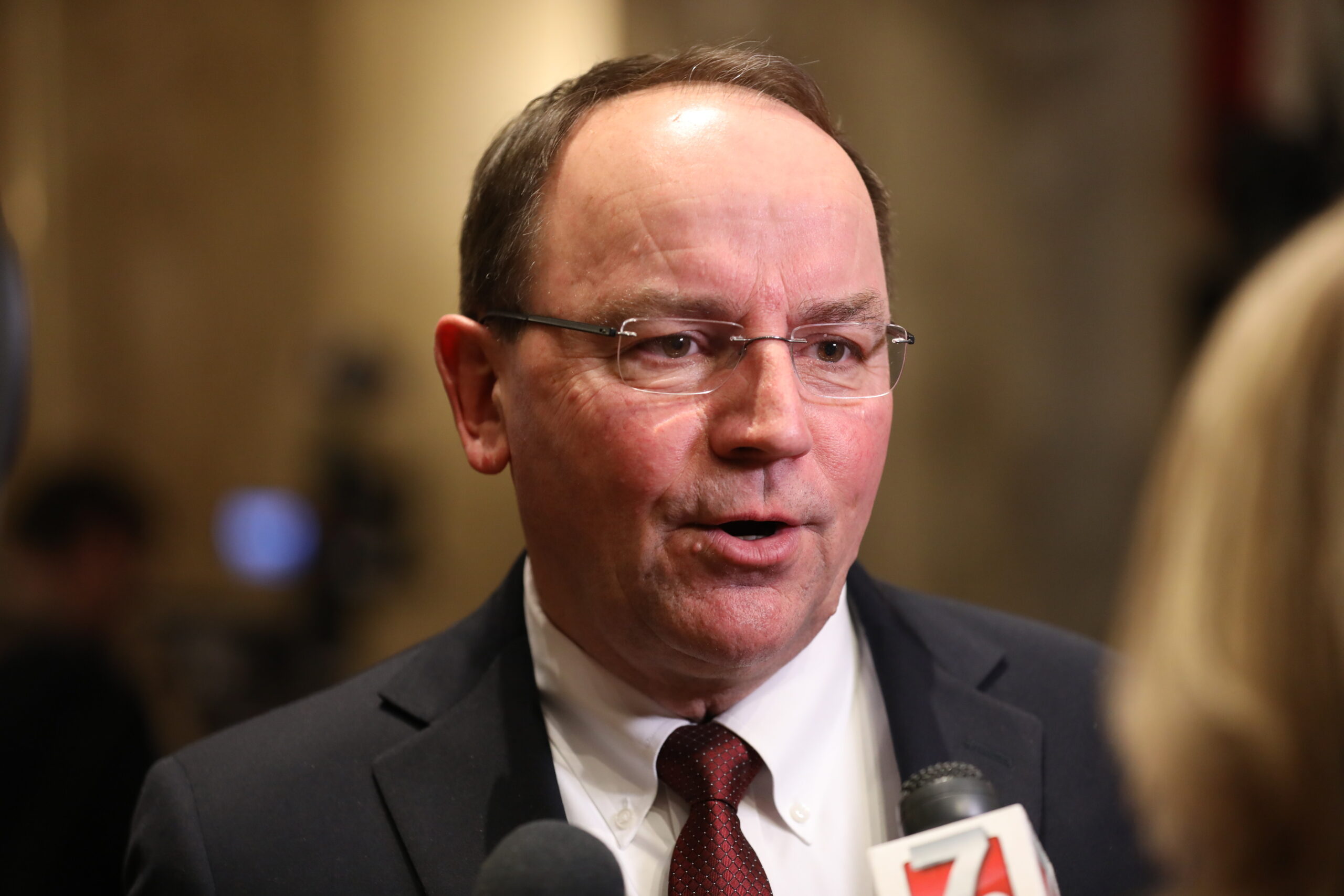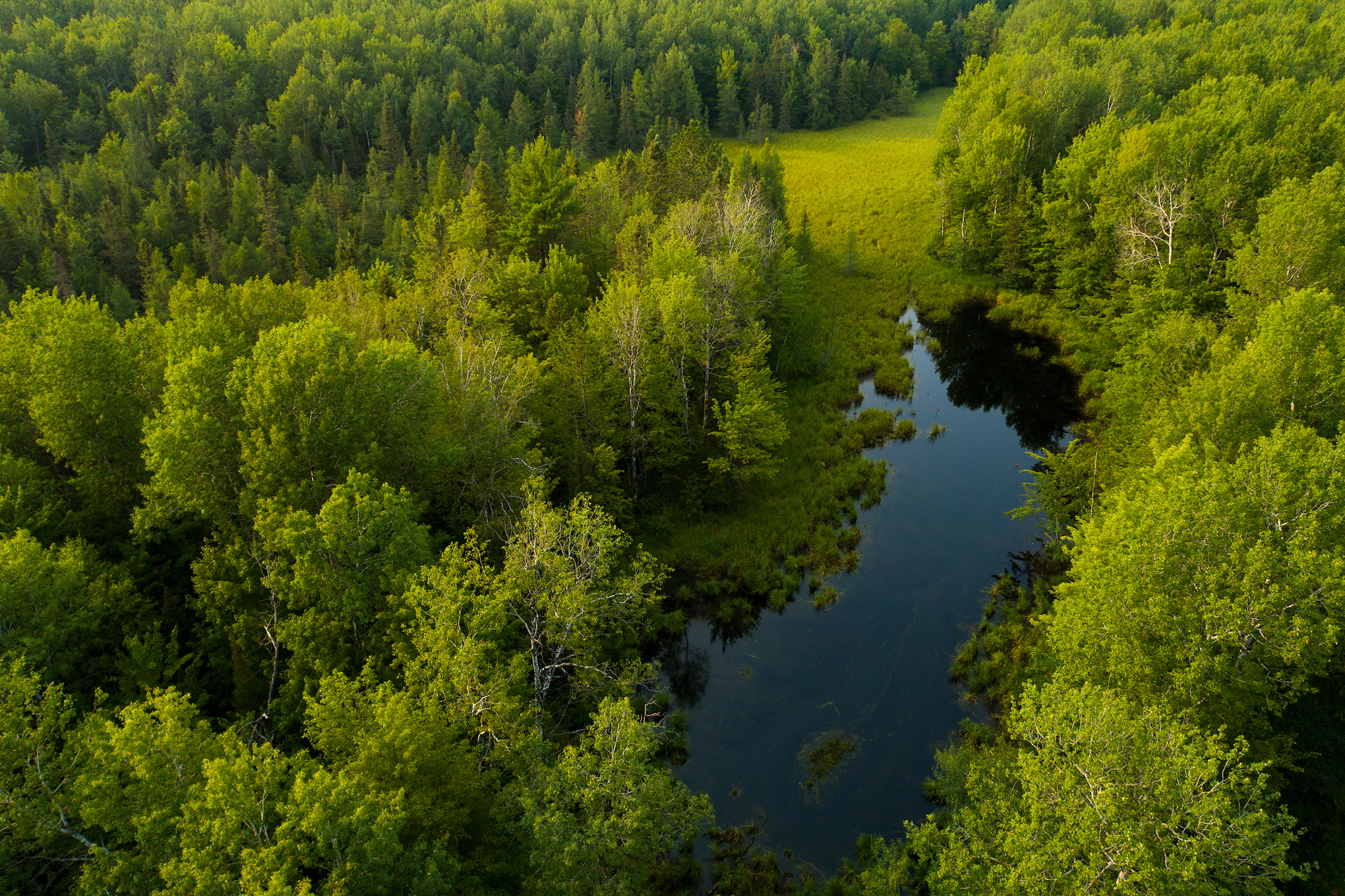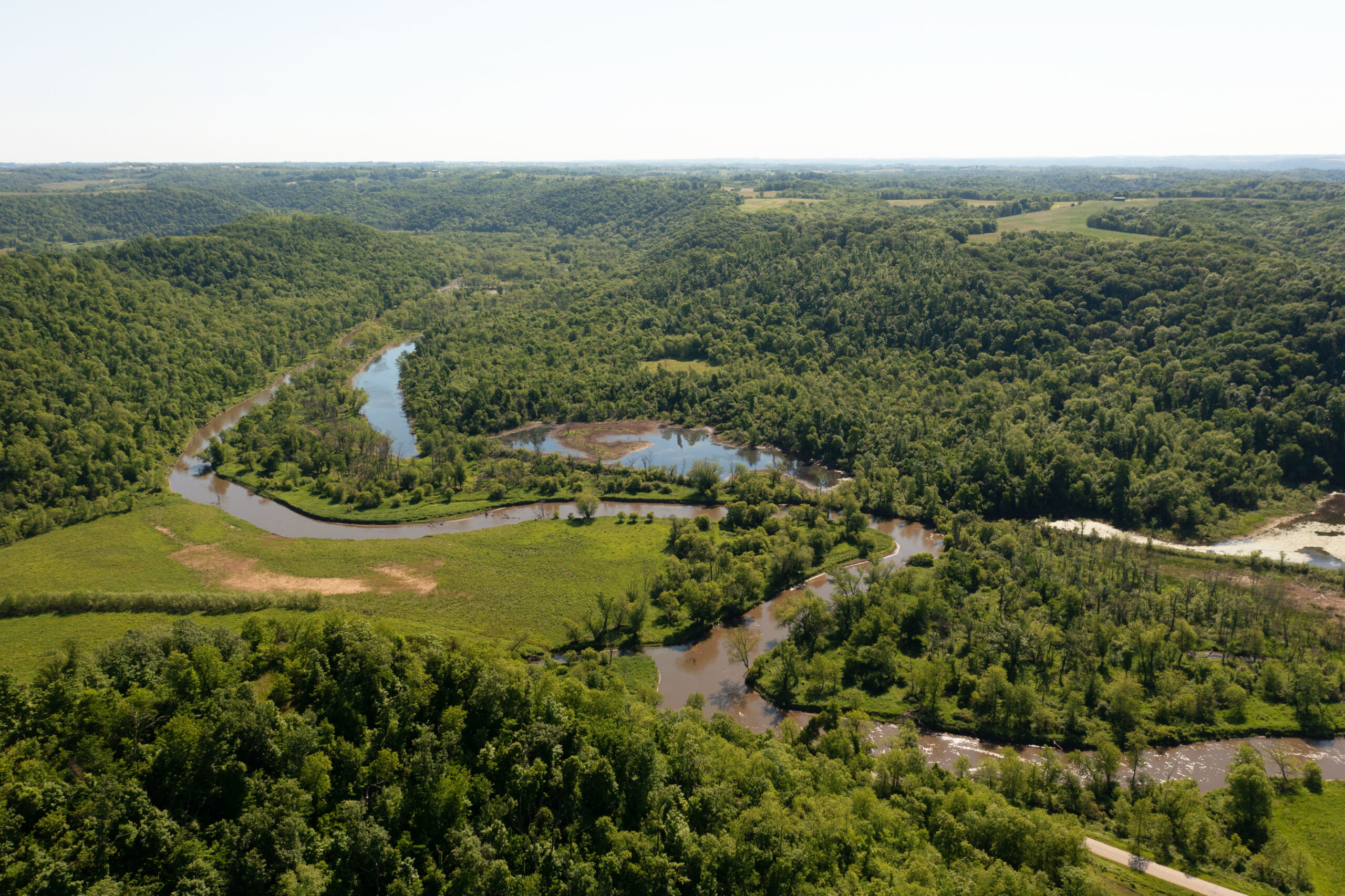Supporters of the Pelican River Forest say enough money has been secured to move forward with the largest land conservation effort in state history, but local officials are pushing to block federal funding for the project.
In 2021, the Conservation Fund purchased roughly 70,000 acres east of Rhinelander for public use and logging. While the land will be privately owned, it will be open to the public for activities like hunting, fishing, hiking and cross-country skiing. The national conservation group and the Wisconsin Department of Natural Resources have been working together to place conservation easements on the property to protect the land into the future.
Officials had sought $4 million under the Knowles-Nelson Stewardship Program — the state’s land purchase program — to help finance a $15.5 million conservation easement on 56,000 acres of the forest. However, the Legislature’s Republican-controlled budget-writing committee killed Stewardship funding for the project last year, citing local concerns.
News with a little more humanity
WPR’s “Wisconsin Today” newsletter keeps you connected to the state you love without feeling overwhelmed. No paywall. No agenda. No corporate filter.
Charles Carlin with Gathering Waters said the Conservation Fund has now secured $4.5 million in new funding to match an $11 million federal grant awarded for the project.
“We feel like things are on track to get this land conserved for everybody here in Wisconsin,” said Carlin, the conservation group’s strategic initiatives director.
Carlin said organizations working on land conservation projects can raise money through private donations and grants, and can cut costs on conservation projects to bring them to fruition. But he referred questions about the source of the new funding for the Pelican River project to the Conservation Fund, which didn’t respond to WPR’s requests for comment. The DNR referred questions about funding for the project to the Forest Service.

Counties ask Forest Service to withhold money for the project
While funding is now in hand, the project continues to face local opposition.
Several counties in northern Wisconsin are asking the Forest Service to revoke an $11 million Forest Legacy Program grant for the project. In December, leaders in Oneida, Forest and Langlade counties said in letters to the federal agency that it failed to coordinate with them and consider their comprehensive plans.
They argue the program established under the Cooperative Forestry Assistance Act requires the Forest Service to coordinate with local governments on projects. County leaders also contend the DNR failed to share information about the conservation easement, saying it should give the agency “just cause” to rescind the grant. The letters highlighted concerns over a permanent reduction in taxes that may be collected from the land.
“Every acre of land that is placed in a reduced tax vehicle, such as a conservation easement, directly harms the county’s ability to pay for the roads, schools, hospitals, emergency services, utilities and other necessary services,” county leaders wrote.
The letters state between 67 and 90 percent of land in the three counties either can’t be taxed or has reduced tax value.
The Conservation Fund has said they would pay about $73,000 in property taxes a year on the land.
Oneida County Board Supervisor Rob Briggs, who is also chair of the Town of Monico, said the conservation easement is a “death sentence” for his town of 264 people.
“When you take that much land and make it so it can never be developed, how are you going to attract people or get people to move here?” Briggs questioned.
Briggs said the main goal is to get state and federal governments to coordinate with local officials.
“We realize private people can do what they want with their land, but there also is (a) coordination process that the state is supposed to go through and the federal (government) as far as using tax dollars or federal money to sponsor stuff like this,” Briggs said.
Counties working with outside group on ‘coordination’
Supporters of the project said the idea of coordination is being promoted by Texas-based American Stewards of Liberty. The group has orchestrated opposition to President Joe Biden’s goal to set aside 30 percent of lands across the country by 2030.
“They’re an extremist group that advocates for undermining conservation laws around the country, supposedly in the name of private property rights,” Carlin said.
The nonprofit organization said it seeks to protect private property rights and “confront the radical environmental movement.” The group’s website says coordination is a process to keep political agendas in check and increase timber, oil and gas production.
“Although Congress has directed Federal agencies to coordinate with States, local governments and tribes in several statutes, the Federal agencies often fail to initiate the process,” the group’s website states. “Successful coordination has been accomplished from the ground up, with local governments insisting the law be followed.”
Carlin said the idea of coordination is a “bogus” legal theory, saying there’s nothing in state or federal statutes that requires the blessing of local governments.
He said a 2010 opinion by Republican former Attorney General J.B. Van Hollen concluded the use of the word “coordination” in state statutes isn’t a legal doctrine that towns can invoke to impose additional requirements on other local governments.
Carlin said county leaders are working with the group in their efforts to force the Forest Service to withhold funding for the project. Briggs said the letters were drafted by an outside group, but he couldn’t recall the name.
Republican Rep. Tom Tiffany, who objected to several land purchases as a state senator, said he suggested local governments work with Margaret Byfield, the executive director for American Stewards of Liberty. Tiffany said he opposes the project, adding northern Wisconsin has plenty of public land. He said the Forest Service didn’t adhere to the letter of the law regarding coordination with local officials.
“I hope the federal agencies…will reach out and contact these local municipalities and coordinate with them, sit down at the table as equals, and see if you can come up with an agreement to how this property should be managed,” Tiffany said.

Counties request meeting with Forest Service
The land that would be covered by the conservation easement has been taxed at a lower rate under the state’s Managed Forest Law Program for 80 years, according to Briggs.
Carlin highlighted the easement would protect the headwaters of the Wolf River along with tributaries that flow into the Wisconsin River. The Pelican River Forest is expected to support 775 forest-related jobs in addition to providing outdoor recreation opportunities.
“It’s going to be an enormous benefit to both the people and the wildlife of Wisconsin,” Carlin said.
He added that the Conservation Fund has adjusted the project to remove more than 1,200 acres from the easement to address local concerns about development along highways running through the town.
Even so, Briggs said the easement would cover about 81.5 percent of the roughly 35,000 acres within the town boundaries. And while he said that land has been taxed at a reduced rate for decades, putting it in an easement would block the possibility of future development. He said previous owners sold off some of the land in the past, allowing it to be taxed at a higher rate. Under the easement, he said that would no longer be possible.
“This can never go back,” Briggs said.
The three counties have requested a meeting with the Forest Service by Jan. 22 to address their concerns before federal grant money is released to the DNR.
A Forest Service spokesperson said the agency is reviewing the letters to determine its response. The agency announced funding for the project in June 2023.
Wisconsin Public Radio, © Copyright 2025, Board of Regents of the University of Wisconsin System and Wisconsin Educational Communications Board.






